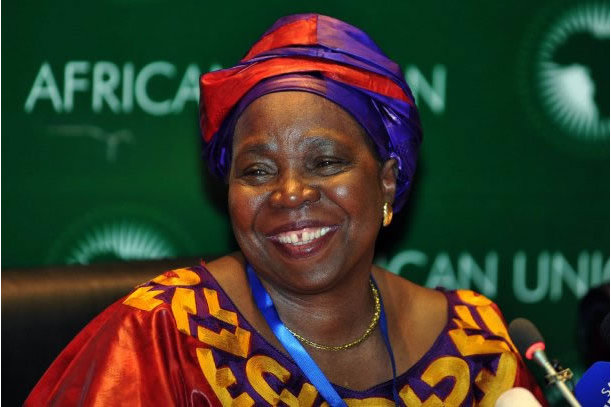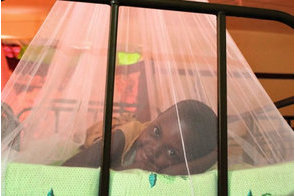African leaders make ‘historic’ endorsement of universal access to immunization

Summary
The Addis Declaration on Immunization calls for increased political and financial investments in immunization programmes.
African Heads of State have endorsed the Addis Declaration on Immunization, also known as the Ministerial Declaration on Universal Access to Immunization, according to a joint statement issued today by the African Union Commission (AUC) and World Health Organisation (WHO). The endorsement – which entails a pledge to ensure that everyone in Africa receives the full benefits of immunization – was made during the 28th African Union Summit in Addis Ababa, Ethiopia.
"The Addis Declaration on Immunization is a historic pledge. With political support at the highest levels, we are closer than ever to ensuring that all children in Africa have an equal shot at a healthy and productive life," said outgoing AUC Chairperson Nkosazana Dlamini-Zuma.
The statement by the Commission and WHO said one in five children in Africa still does not receive basic life-saving vaccines and, as a result, vaccine-preventable diseases continue to claim too many lives. Measles alone accounts for approximately 61,000 preventable deaths in the African region every year.
The Addis Declaration on Immunization calls for countries to increase political and financial investments in their immunization programmes. It includes 10 commitments, including increasing vaccine-related funding, strengthening supply chains and delivery systems, and making universal access to vaccines a cornerstone of health and development efforts.
"Vaccines are among the most effective public health tools available," said Dr Matshidiso Moeti, WHO Regional Director for Africa. "When children are given a healthy start, communities thrive and economies grow stronger. This show of support from Heads of State is a significant step forward in our efforts to achieve universal access to immunization and, ultimately, improve child health and drive sustainable development across Africa."
Fewer than 15 African countries fund more than 50% of their national immunization programmes. As Africa nears polio eradication, WHO has said critical funding for immunization through the polio eradication programme is expected to ramp down. Additionally, countries approaching middle-income status will transition away from Gavi support for immunization in the coming years. Consequently, governments must redouble their efforts to make universal immunization coverage a national priority.
"African leaders are showing outstanding leadership by endorsing this landmark commitment which will allow more African children to be reached with life-saving vaccines no matter where they live," said Dr Ngozi Okonjo-Iweala, Chair of Gavi, the Vaccine Alliance board. "We must now ensure that the commitments translate into sustainable financing for immunization. Gavi stands ready to support African countries in their efforts to implement equitable health approaches and maintain strong immunization coverage so we can create together a more prosperous future for communities across our continent."
The Addis Declaration on Immunization was signed by Ministers of Health and other line ministers at the Ministerial Conference on Immunization in Africa (MCIA) in February 2016 in Addis Ababa. MCIA was the first-ever ministerial-level gathering with a singular focus on ensuring that children across the continent can access life-saving vaccines. To guide the implementation of the ADI, a roadmap is being developed in close collaboration with the WHO offices in the African Region and Eastern Mediterranean Region, the African Union Commission and immunization partners.
"With the right mix of political will, financial resources and technical acumen, Africa can - and will - stem the tide of vaccine-preventable diseases across the continent," added Dr Ala Alwan, outgoing WHO Regional Director for the Eastern Mediterranean.
Related
-
Plant-based diet as healthy substitute for red meat
The surest way to correct the health problems caused by diet is through diet itself.
-
World Malaria Report 2016 reveals progress in Africa, challenges remain
The report found that more than half (53%) of the population at risk in sub-Saharan Africa slept under a treated net in ...
-
Changing the narrative of Nigeria’s health sector with PHC adoption
Herbert Wigwe, Aliko Dangote, Aig-Aigboje Imoukhuede, and Jim Ovia have adopted primary health care centres in Rivers, ...







